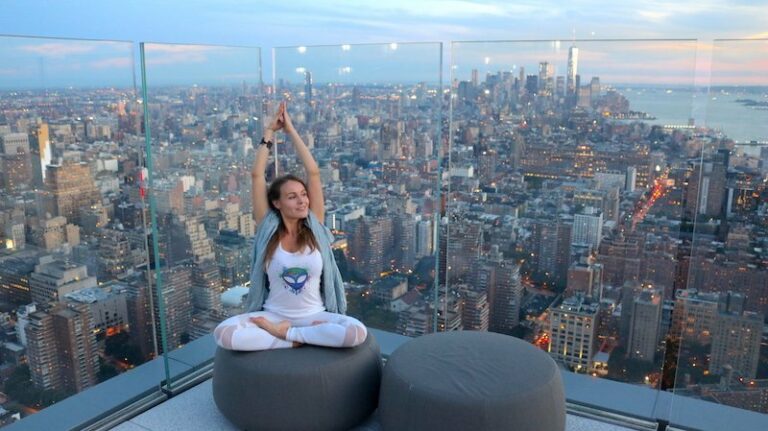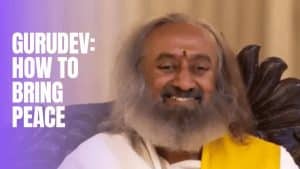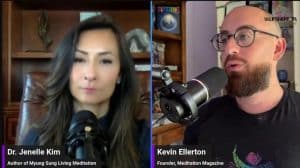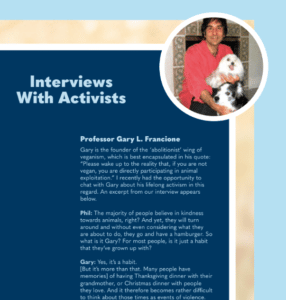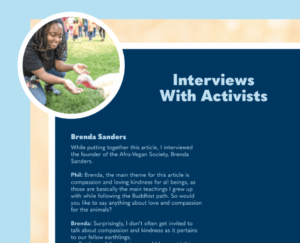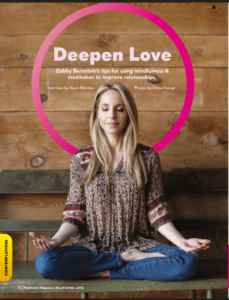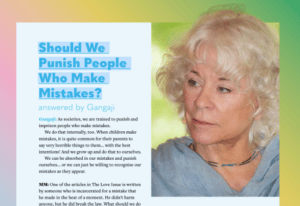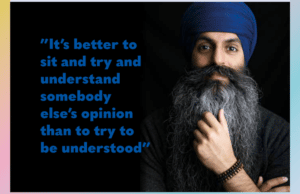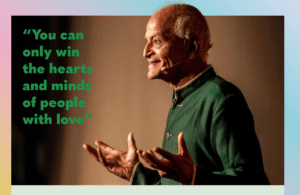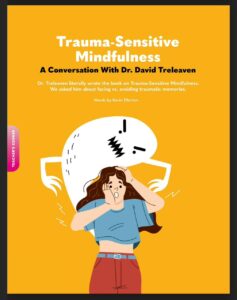Click the video above to watch the full interview, or read on for excerpts! (Also, make sure to subscribe to our YouTube channel, which is full of awesomeness!)
We first met Ekaterina Ket in Ubud, Bali.
Kevin was leading a meditation group at Hubud, the local coworking space, when Ekaterina sauntered into the circle with her Tibetan bowl. The joyful energy she brought into the group was infectious. She played the singing bowl, pressed it against peoples’ backs, and even put it on their heads, as monkeys played and jumped between the branches overhead. We caught up with Ekaterina back here in NYC, on the roof of the Eugene, one of those crazy tall new buildings in Midtown West.
MM: Can you tell me a little bit about how you learned about the singing bowl, and why you do it?
EK: Yeah! It’s not a big secret. When people are working during the day, or simply walking in the street in huge cities, they experience beta wave [brain states]. Beta waves are when we feel a vibration about business. It’s our left brain. But when we meditate, when we listen to singing bowls, or when we get excited, we catch alpha waves. Alpha waves is exactly this sound [hits bowl] which Tibetan bowls produce.
This Tibetan bowl consists of nine different kinds of metals. This bowl is named Green Tara. It especially works for your Anahata Chakra. It helps you open your heart. So when I make a Tibetan bowl sound healing, it’s massage and meditation both. The tibetan bowls touch your body, and you feel vibrations inside your body. And all water, like blood, totally makes a different structure.
You feel peaceful, you feel relaxation, you feel happiness inside of you.
Sometimes, people have questions [in life]. And usually we listen just to our brain [when making decisions]. But it’s so important to listen to your heart and your soul. And when we catch alpha waves, with tibetan bowls (or simple meditation without sound), it’s possible to get [clarity and make better decisions based on what you really want in] your heart.
My teacher is originally from Nepal and he has been teaching people for 33 years. He’s in a town named Kathmandu, in one of the most powerful places in the world — it’s named Stupa Boudhanath. My teacher is incredible. When I got lessons with him, one day he told me, “My beautiful students! Get a stick, and imagine you’re playing [the singing bowls] for children.” And we played for children. And the second day, he told us, “Feel this vibration, feel this town, and play for all the people.” And we played for all people. And every day, every day was different. It was an incredible experience.
MM: What is the most important thing in life, to you?
EK: For me, most important is your experience. I tell people all the time: “when you finish education in your school and university, the most important school is the world. Get your backpack and travel around the world. Meet people. Get the very important lessons.
MM: So the most important thing in life is the experience, learning from the world?
EK: Yes, the best teacher is the world.
For me, when I travel, sometimes I think: “Which place in the world is nice for me? Where do I want to stay and spend my life, most of the time?” And after this experiment, I [realize]… if you’re happy inside, you will be happy everywhere. Doesn’t matter if it’s Bali, if it’s New York, or Moscow, or Hawaii!
MM: What do you find is the most important benefit that you get from meditation? Why should people do it?
EK: Because people [when they meditate] more feel heart, and what your heart is telling you. And you have more connection with your brain and with your soul both. And after that, I think you make better decisions about relationships or about business… or about anything!
MM: What inspired you to come and practice and teach people meditation here in New York?
EK: Three months of the year I organize retreats with my Chinese partner Vivian in Bali, and it’s Asia. I get a lot of inspiration in Asia. After that, in the summer, I go back to Russia to my meet with my parents, my sister, my friends.
And here in New York a lot of people have stress. And 85% use antidepressants. I know this is a bad statistic, but I have a lot of people who work with medicine here, and people tell me it’s very sad. I wanna help people to make a nice quality of life without medicine, without drugs, without antidepressants, because we have a huge power inside of us and all people can do it. Definitely.

